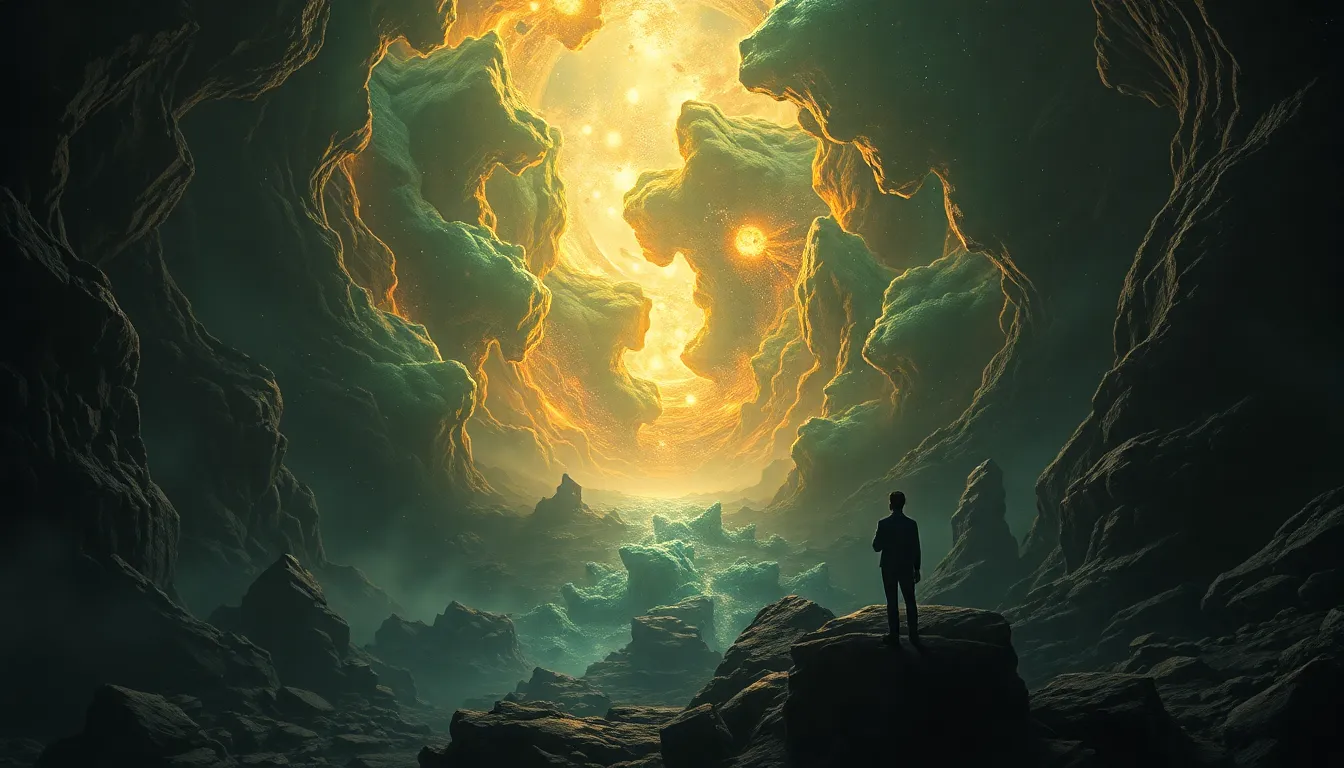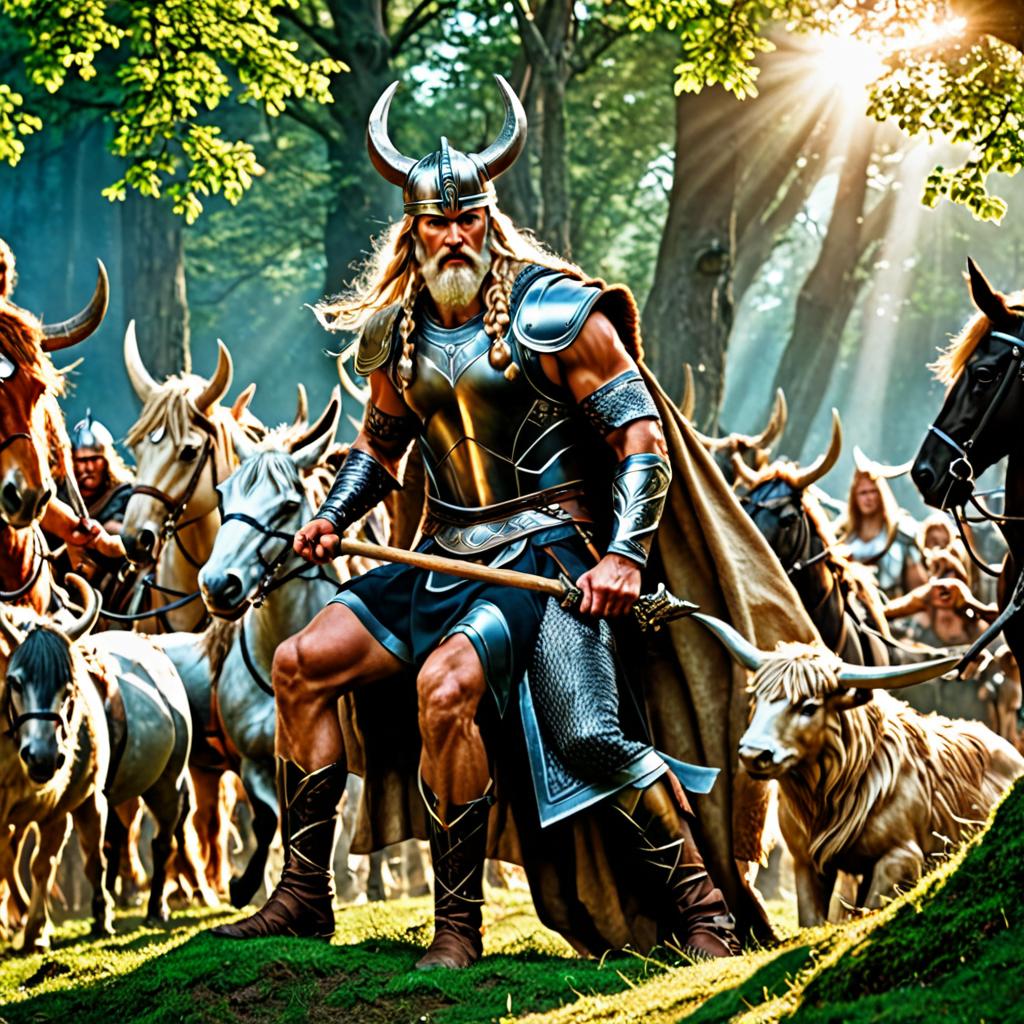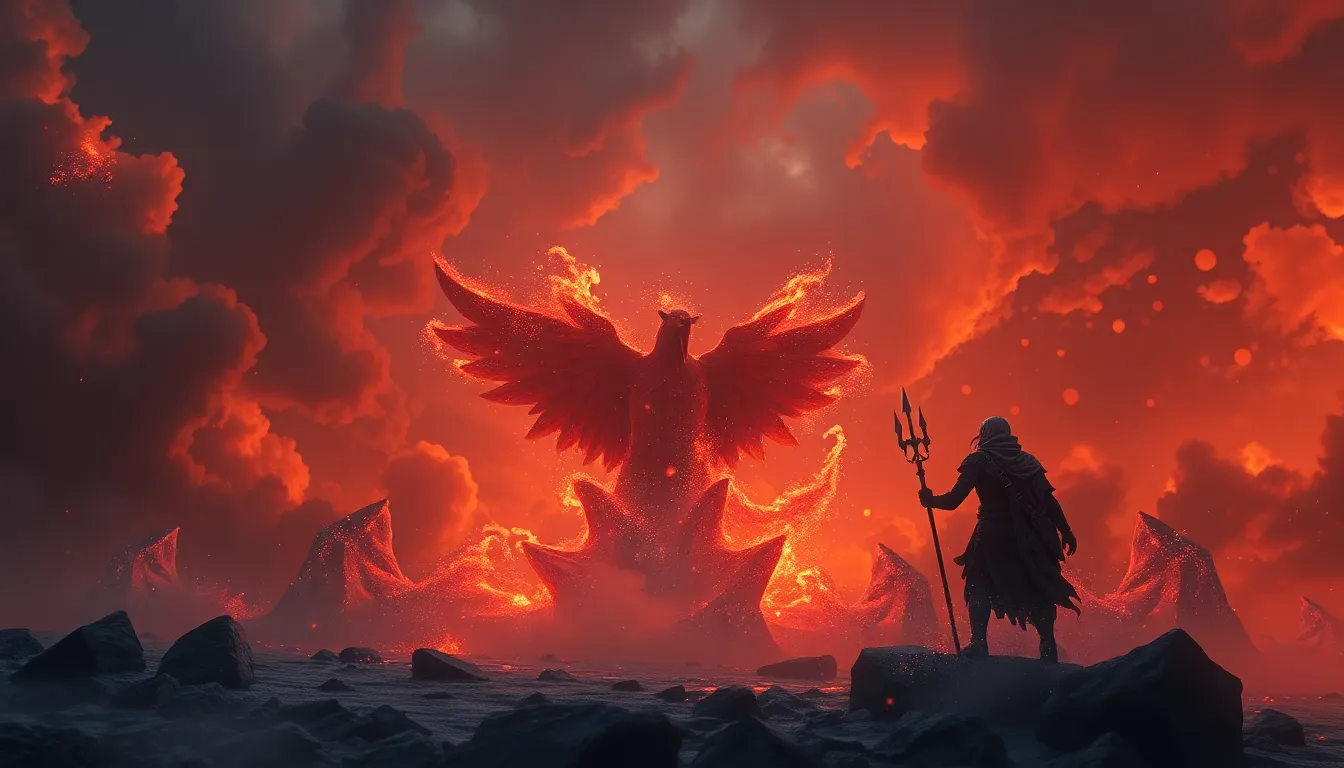The First Echo: Creation Myths That Resound Through Time
I. Introduction
Creation myths are foundational narratives that explain the origins of the universe, humanity, and the natural world. These stories often serve as a framework for understanding existence and provide insight into the values and beliefs of a culture.
The importance of creation myths transcends mere storytelling; they play a crucial role in shaping the identities, religions, and worldviews of various cultures. From ancient civilizations to modern societies, these myths resonate through time, reflecting the collective psyche of humanity.
This article explores the nature of creation myths, examining their themes, cultural significance, and psychological impact. We will journey through various cultures, including those of the Ancient Near East, Indigenous peoples, Eastern philosophies, Greek and Roman traditions, African narratives, and the modern reinterpretations of these myths.
II. The Nature of Creation Myths
A. Common Themes and Motifs
Creation myths often share several common themes and motifs, including:
- The creation of the cosmos from chaos
- The emergence of life from a primordial source
- The involvement of divine beings or forces
- The establishment of order from disorder
- The role of humans in the creation narrative
B. The Role of Mythology in Human History
Mythology has played a pivotal role in human history by providing frameworks for understanding existence, morality, and the universe. Creation myths help societies make sense of their world and their place within it.
C. Psychological and Sociological Perspectives on Creation Myths
From a psychological perspective, creation myths can be seen as reflections of human fears, desires, and aspirations. They often address existential questions, such as the meaning of life and the nature of suffering. Sociologically, these myths serve to unify communities and establish shared beliefs and values.
III. The Ancient Near East: The Epic of Creation
A. The Enuma Elish: Babylonian Creation Story
The Enuma Elish is a Babylonian creation myth that describes the battle between the god Marduk and the primordial chaos represented by Tiamat. Through this conflict, Marduk creates the world and humanity, establishing order from chaos.
B. The Genesis Account: Judeo-Christian Perspectives
The Genesis account in the Bible also presents a creation narrative, where God creates the world in six days and rests on the seventh. This story emphasizes the goodness of creation and the special status of humanity as created in God’s image.
C. Comparative Analysis of Near Eastern Myths
While both the Enuma Elish and Genesis depict creation, they differ significantly in their portrayal of divinity and the nature of chaos. The Babylonian myth includes a more violent struggle, while the Genesis account presents a sovereign God who creates through divine command.
IV. Creation Myths in Indigenous Cultures
A. The Story of the Dreamtime: Aboriginal Australian Creation
The Dreamtime is a foundational aspect of Aboriginal Australian cultures, explaining the creation of the land, people, and animals. It emphasizes the interconnectedness of all beings and the importance of ancestral spirits.
B. Native American Creation Stories: Variations and Similarities
Native American cultures feature a rich tapestry of creation stories, each unique yet sharing common elements, such as the emergence of life from water or the role of the trickster figure. These stories often convey moral lessons and the importance of harmony with nature.
C. The Role of Nature and Animals in Indigenous Myths
In many Indigenous creation myths, nature and animals are central characters, symbolizing the interconnectedness of all life. These narratives often highlight ecological wisdom and respect for the natural world.
V. Eastern Philosophies and Their Creation Narratives
A. Hindu Creation Myths: From the Cosmic Ocean to the Cycle of Life
Hindu creation myths often describe a cyclical view of time, where creation, preservation, and destruction are interconnected. The story of Vishnu creating the world from the cosmic ocean illustrates this belief.
B. Chinese Creation Stories: Pangu and the Formation of the Universe
In Chinese mythology, the story of Pangu describes how the giant Pangu emerged from a cosmic egg and separated the heavens and the earth, creating the world. This narrative reflects themes of dualism and balance.
C. Influence of Eastern Philosophies on Global Thought
Eastern creation narratives have influenced global thought, providing alternative perspectives on existence and the cosmos. Concepts such as karma, dharma, and the cyclical nature of life resonate beyond their cultural origins.
VI. The Influence of Greek and Roman Myths
A. Theogony of Hesiod: Birth of the Gods and the World
The Theogony, written by Hesiod, outlines the origins of the gods and the cosmos, detailing the genealogies and conflicts among divine beings. This work establishes a framework for understanding Greek mythology.
B. Roman Adaptations: How Creation Myths Evolved
The Romans adopted and adapted Greek myths, incorporating their own values and beliefs. The creation narratives often focused on the divine right of emperors and the significance of fate.
C. Impact on Western Literature and Art
Greek and Roman creation myths have profoundly impacted Western literature and art, inspiring countless works that explore themes of creation, divinity, and the human condition.
VII. Creation Myths in African Traditions
A. Diverse Narratives: From the Dogon to the Ashanti
Africa is home to a rich variety of creation myths, each reflecting the diverse cultures and languages of the continent. The Dogon people, for example, have intricate stories involving the Nommo, ancestral spirits associated with water and fertility.
B. The Role of Oral Tradition in Preserving Myths
Oral tradition plays a crucial role in preserving African creation myths, allowing them to be passed down through generations. Storytelling is a communal activity that fosters cultural identity and continuity.
C. Symbolism and Lessons in African Creation Stories
African creation myths often contain deep symbolism and moral lessons, emphasizing themes such as community, respect for nature, and the importance of ancestors.
VIII. The Modern Resonance of Creation Myths
A. Creation Myths in Contemporary Literature and Media
Creation myths continue to resonate in contemporary literature and media, often reinterpreted through modern lenses. Authors and filmmakers draw on these narratives to explore existential questions and cultural identity.
B. The Influence of Science on Traditional Myths
Scientific discoveries, such as the Big Bang theory and evolution, have challenged traditional creation myths. Many cultures are adapting their narratives to coexist with scientific understanding.
C. Reinterpretations of Myths in a Globalized World
In a globalized world, creation myths are often reinterpreted, blended, or revived, reflecting the dynamic nature of culture and belief systems.
IX. The Psychological and Cultural Impact of Creation Myths
A. Myths as a Reflection of Human Experience
Creation myths serve as reflections of human experiences, encapsulating our fears, hopes, and aspirations. They provide narratives that help individuals navigate their identities and relationships.
B. The Role of Creation Myths in Identity Formation
These myths contribute to identity formation by establishing a sense of belonging and shared history within communities. They create a framework for understanding one’s place in the world.
C. Creation Myths and Their Use in Modern Spirituality
In modern spirituality, creation myths are often revisited and reinterpreted, offering insights into personal and collective spirituality. They serve as a source of inspiration and guidance in a complex world.
X. Conclusion
Creation myths are more than mere stories; they are essential components of cultural identity, providing insight into humanity’s deepest questions and beliefs. As we have explored various narratives across cultures, it is evident that these myths continue to resonate, influence, and inspire us. They remind us of our shared humanity and the timeless quest for understanding our existence.




